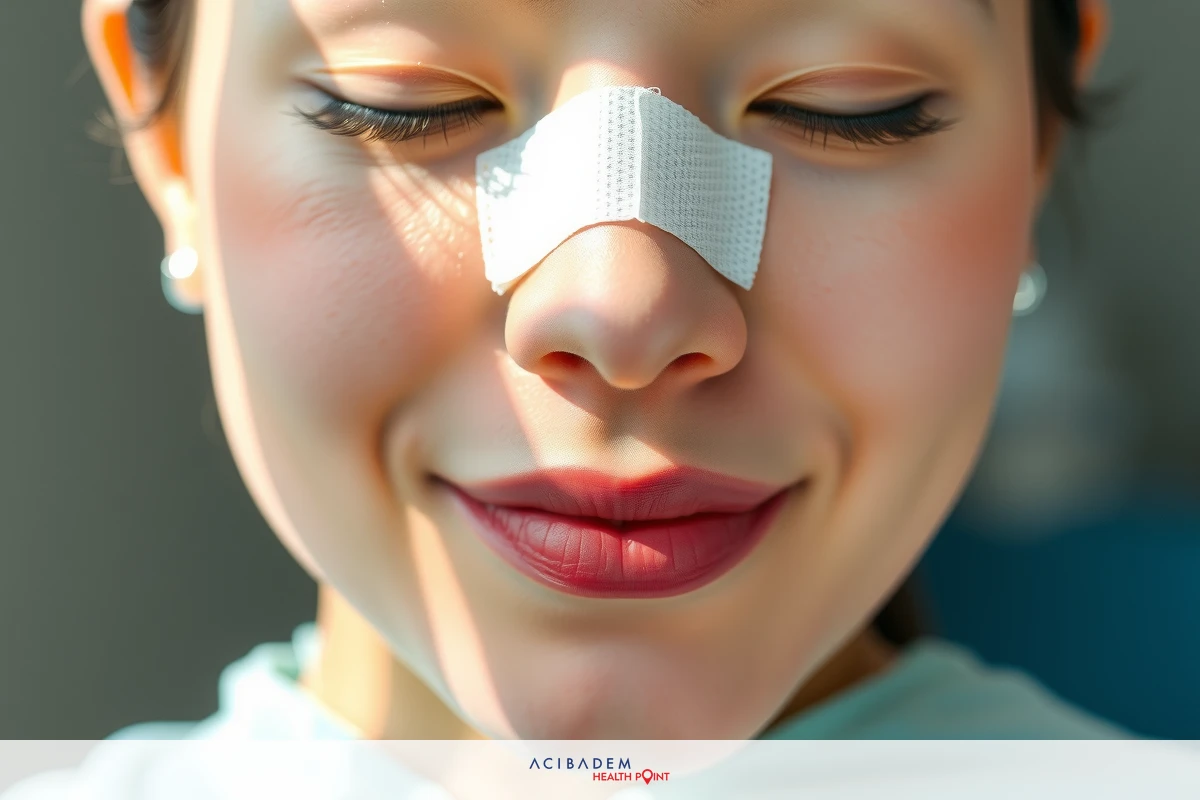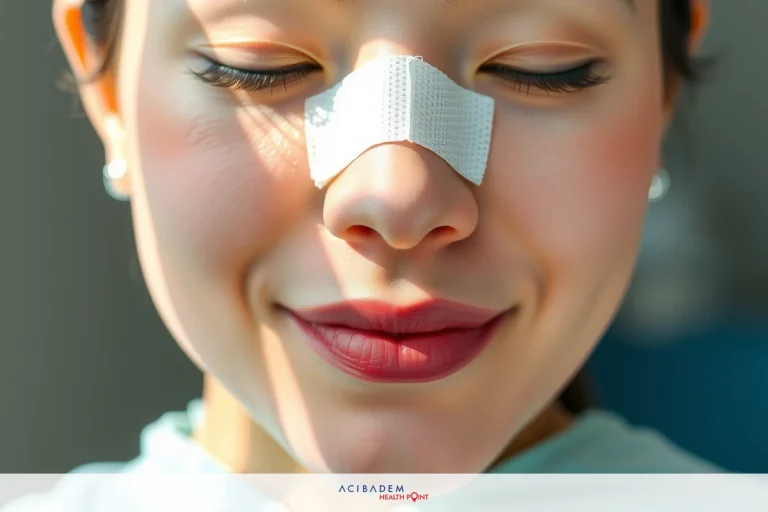What Happens If I Blow My Nose After Rhinoplasty?
What Happens If I Blow My Nose After Rhinoplasty? Rhinoplasty, or nose reshaping, can enhance your appearance and improve your breathing. However, the recovery period comes with certain precautions to ensure the best possible results. One of these involves blowing your nose. It’s essential to understand when and how to do this safely to prevent any disruption to the healing process.
Blowing your nose after rhinoplasty may seem like a simple act, but doing it too soon or with too much force can potentially harm the surgical site. Precautions during this period are necessary for a smooth recovery. Moreover, there are a few tips and techniques that can make this process more comfortable and less stressful. This article provides guidance on these aspects, helping you navigate post-rhinoplasty care with ease.
When Can I Blow My Nose?
After rhinoplasty, patience is key during the recovery period. This is especially true when it comes to blowing your nose. Surgeons generally advise patients to avoid any form of nose-blowing for at least one to two weeks following the procedure. This precaution helps protect the surgical site and allows the tissues time to heal. The exact timeline can vary based on the complexity of the surgery and individual healing rates. Therefore, it’s important to follow the specific instructions given by your healthcare provider.
Preventing nose-blowing during this initial post-surgery period minimizes the risk of complications such as bleeding, swelling, and disruption of the surgical site. Blowing your nose can exert pressure on the delicate nasal structures which are still healing and can potentially alter the results of your rhinoplasty. It’s crucial to be gentle with your nose during this time and take all necessary precautions to aid in a smooth recovery process.
Once your surgeon gives you the green light, you may start blowing your nose again. But remember, even after this point, you’ll need to exercise caution. Blow gently, taking care not to exert too much pressure. In case of a persistent runny or congested nose, it’s advisable to consult your doctor rather than resorting to repeated noseblowing. They may suggest alternatives like saline sprays or humidifiers that can provide relief without risking harm to your recovering nose. Always prioritize safety over temporary comfort during your rhinoplasty recovery.
Precautions for Blowing Your Nose
During the recovery period following rhinoplasty, cautiousness becomes a vital part of your daily routine, particularly when it comes to blowing your nose. While it’s essential to keep your nasal passages clear, you must do so with utmost care to avoid any harm to the healing tissues. The ensuing points highlight some crucial precautions to keep in mind while blowing your nose during this sensitive phase.
- Wait for the Go-Ahead: Do not attempt to blow your nose until your surgeon permits you to do so. Typically, you should wait at least one to two weeks postsurgery before considering this.
- Be Gentle: When you are finally allowed to blow your nose, remember to be gentle. Avoid forceful blowing as it can disrupt the healing process and might alter the results of your surgery.
- Use Soft Tissues or Handkerchiefs: Opt for soft tissues or handkerchiefs when blowing your nose. Rough materials may cause irritation and discomfort.
- Avoid Sneeze Suppression: If you need to sneeze, let it out openly rather than suppressing it or sneezing through your nose. This prevents pressure build-up inside the nasal cavities.
- Stay Hydrated: Hydration can help thin out mucus and make it easier for you to blow your nose without applying too much pressure.
- Refrain from Nose Picking: Picking your nose can irritate the delicate tissues inside and may even lead to

Smiling woman wearing a surgical mask on her nose. She appears to be in a medical setting, likely during or after a cosmetic procedure. infections. Use a saline spray if you feel congested.
Adhering to these precautions can facilitate a smoother recovery and ensure optimal outcomes from your rhinoplasty procedure. Always remember that when in doubt, consult with your healthcare provider before taking any action that could affect your recovery process.
Tips for Comfortable Nose Blowing
Blowing your nose after rhinoplasty can be a delicate task, requiring both care and technique. Doing it the right way can ensure you avoid any unnecessary discomfort and potential complications during your recovery period. Here are some tips that can help make nose blowing more comfortable and gentle after rhinoplasty.
- Use Warm Compresses: Applying a warm compress to your face can help loosen any congestion, making it easier to blow your nose gently.
- Stay Hydrated: Keeping yourself well-hydrated can thin out mucus, facilitating easier and more comfortable nose blowing.
- Practice Gentle Blowing: Blow your nose with minimal force, one nostril at a time. This limits the pressure on healing tissues.
- Use Soft Tissues: Opt for tissues that are soft and gentle on the skin to avoid any irritation when blowing your nose.
- Use Saline Sprays: Saline sprays can help moisten the nasal cavity and thin mucus, making it easier to blow your nose without much effort.
- Don’t Rush: Take your time while blowing your nose; rushing can lead to forceful blowing which isn’t advisable post-rhinoplasty.
- Keep Your Mouth Open: When you blow your nose, do so with your mouth open to avoid creating excessive pressure in the nasal cavities.
Remember, the goal is to maintain comfort while ensuring safety during the recovery process. If you encounter persistent difficulties or discomfort while blowing your nose, it’s advisable to consult with your healthcare provider for additional guidance or alternative solutions.
Frequently Asked Questions
When can I start blowing my nose after rhinoplasty?
It is generally recommended to wait for at least one to two weeks before blowing your nose after rhinoplasty. However, it's important to consult with your surgeon for specific instructions tailored to your individual healing process.
Can I use tissues to blow my nose after rhinoplasty?
Yes, you can use soft tissues to blow your nose after rhinoplasty. Opt for gentle and non-irritating tissues to avoid any discomfort or irritation to the healing nasal tissues.
What if I accidentally blow my nose too hard during the recovery period?
Accidentally blowing your nose too hard can cause discomfort and potentially disrupt the healing process. If this happens, contact your surgeon and inform them of the situation. They will provide you with further guidance based on your specific circumstances.
Are there any alternatives to blowing my nose during the recovery period?
Yes, there are alternatives to blowing your nose during the recovery period. Your surgeon may recommend using saline sprays or nasal rinses to help keep your nasal passages clear without the need for forceful blowing.
What should I do if I experience persistent nasal congestion after rhinoplasty?
If you experience persistent nasal congestion after rhinoplasty, it's best to consult with your healthcare provider. They can evaluate your condition and recommend appropriate remedies such as saline sprays, humidifiers, or other options to alleviate congestion without compromising your recovery. Remember, every individual's recovery process may vary, so it's crucial to follow the specific instructions provided by your surgeon and seek their guidance if you have any concerns or uncertainties.











